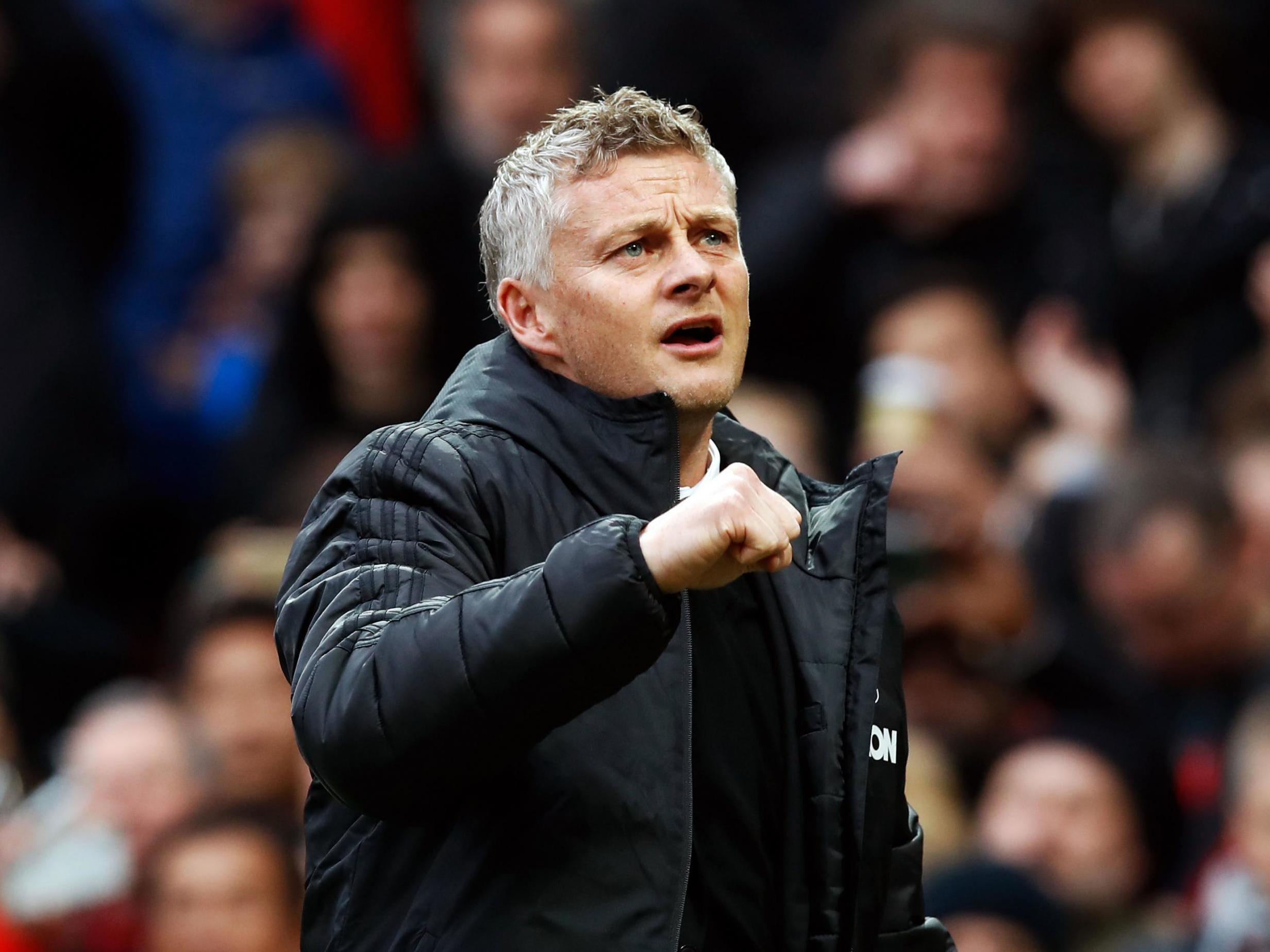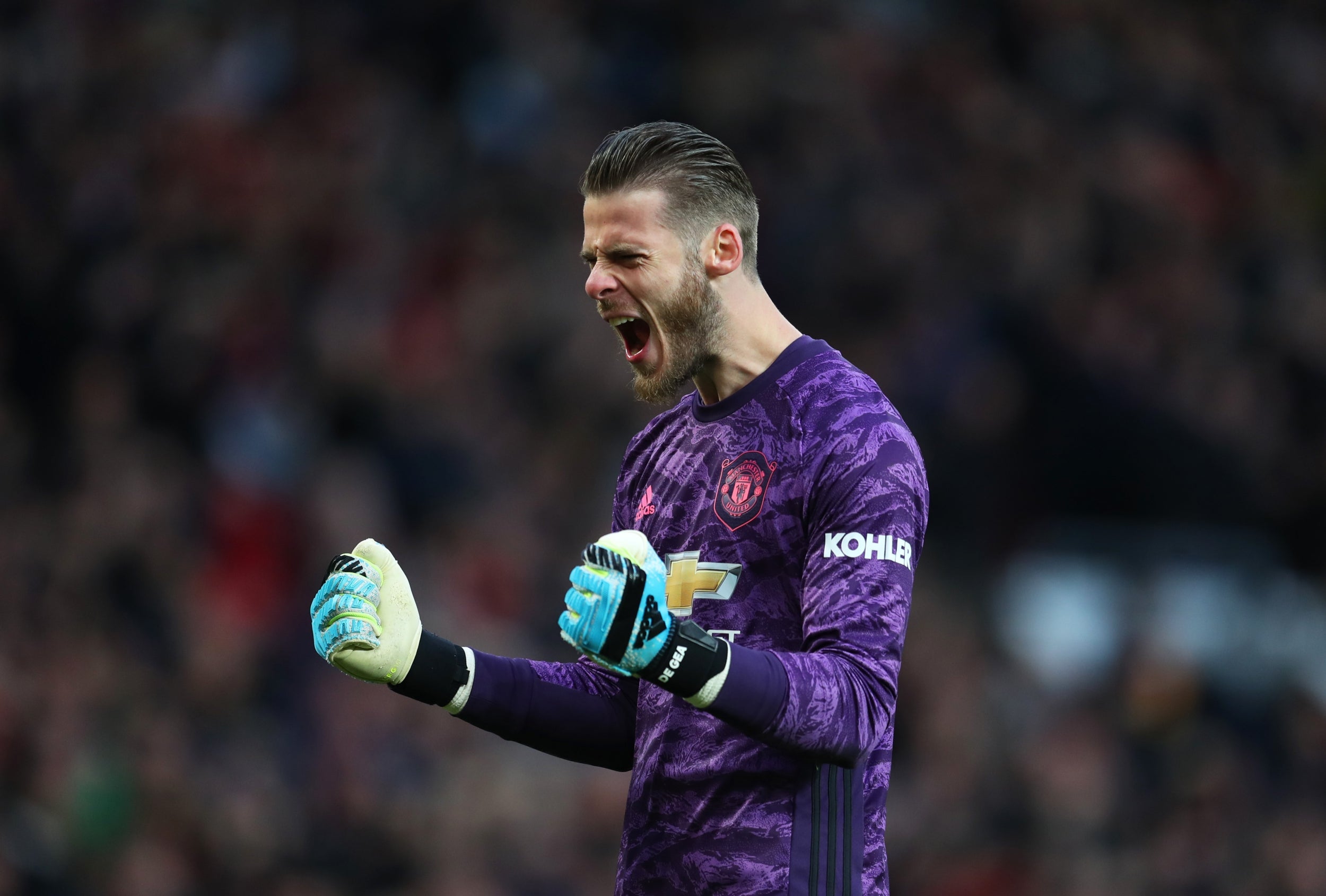Partizan vs Manchester United: New system unlikely to last with Ole Gunnar Solskjaer’s side set to revert back to flawed self
The Norwegian set up with a 3-4-1-2 against the Reds to earn a valuable point at Old Trafford but that system is not likely to last

Your support helps us to tell the story
From reproductive rights to climate change to Big Tech, The Independent is on the ground when the story is developing. Whether it's investigating the financials of Elon Musk's pro-Trump PAC or producing our latest documentary, 'The A Word', which shines a light on the American women fighting for reproductive rights, we know how important it is to parse out the facts from the messaging.
At such a critical moment in US history, we need reporters on the ground. Your donation allows us to keep sending journalists to speak to both sides of the story.
The Independent is trusted by Americans across the entire political spectrum. And unlike many other quality news outlets, we choose not to lock Americans out of our reporting and analysis with paywalls. We believe quality journalism should be available to everyone, paid for by those who can afford it.
Your support makes all the difference.Could Sunday’s 1-1 draw with Liverpool be a turning point for Ole Gunnar Solskjaer and Manchester United? It was perhaps their most tactically astute performance of the season to date, in some aspects more convincing than the opening weekend’s 4-0 win over Chelsea, and maybe even their best day at the office since the victory at Paris Saint-Germain back in March.
Solskjaer’s switch to a 3-4-1-2 formation worked, neutralising Liverpool’s full-backs and maximising the pace for Daniel James and Marcus Rashford. If it is maintained, it would suit a squad which is top heavy in defence and somewhat light in attack. “It can develop into something,” Solskjaer said after the final whistle on Sunday. “We have players to play three at the back and it allows more width.”
The United manager has maintained for some time that results would eventually turn, insisting that the underlying performances have been good. “We felt we haven't got the results we deserved but we need to win games,” he said, albeit while making sure not to seem too pleased with a draw at home. “One point is a start but we’re still disappointed. We’re not excited by one point.”
Now though, they must play away. United arrive in Serbia for a Europa League meeting with Partizan Belgrade having not won on the road since that night in Paris. This is the first of four consecutive games away from home, with Norwich City, Chelsea in the EFL Cup and Bournemouth to follow. Even after Sunday’s showing, you would be reluctant to put a significant amount of money on them winning any one of those four.
“It's a question we've asked ourselves as well,” Solskjaer said on Wednesday, when his side’s dreadful away form was put to him. “After I came in we won nine on the bounce and since then we haven't won any.” Only last month, he was bristling at the idea that his lack of away wins was a concern. He is a little more honest with himself now. “It's an issue we have to deal with and sort out as soon as possible,” the United manager admitted.
The arrival of the world’s most expensive defender, Harry Maguire, was supposed to help points come easier. “It's never nice when you're not winning away from home,” he said in Belgrade, speaking to the national press for the first time since signing. “We're working on it, questioning ourselves. We’ve got four tough away games but we're starting tomorrow and hopefully we can kick-start that with a win tomorrow.”
But though the spirit is willing, the flesh is weak. The problem - clear to most who watch this team regularly - is tactical. United are comfortable playing without the ball, sitting deep, remaining disciplined and then countering at speed. Solskjaer is happy to trade possession for gaining space in behind. And while that approach may appear to suit your typical away side, United are no typical opponent. On the majority of occasions, they are expected to provide the game’s attacking impetus. This is Manchester United, after all.

Belgrade on Thursday night is likely to be one such occasion. Savo Milosevic’s Partizan currently only sit fifth in the Serbian Superliga yet have conceded just seven goals in their 11 games this season. It is expected that they will attempt to play United at their own game: sit off, allow Solskjaer’s side to come at them then attempt to pick them off on the break. There are few teams in Europe’s second-tier club competition who would do things differently if a club of United’s stature come calling.
Solskjaer needs to discover a way to comfortably beat these types of teams if he is to win the tournament and achieve Champions League qualification by means other than a top-four finish. There are simply too many teams in the Europa League who - either over-awed or under-resourced - would set up to frustrate United like West Ham, Rochdale, AZ Alkmaar and Newcastle have over the past month. It is now six games since United’s last win - that limp, narrow victory at home over Kazakhstani champions Astana.

Despite it being a qualified success, the new formation is not expected to survive. It was a specific game plan to combat Liverpool’s strengths and Solskjaer’s usual 4-2-3-1 is likely to be reinstated. There will therefore not be the same space to break into and attack. This time, United’s opponents will simply not allow it. Sunday’s result was a flicker of hope that Solskjaer’s methods can work if all things fall neatly into place, but Thursday and the away trips which follow are more likely to be a stark reminder of where United are at.
Join our commenting forum
Join thought-provoking conversations, follow other Independent readers and see their replies
Comments